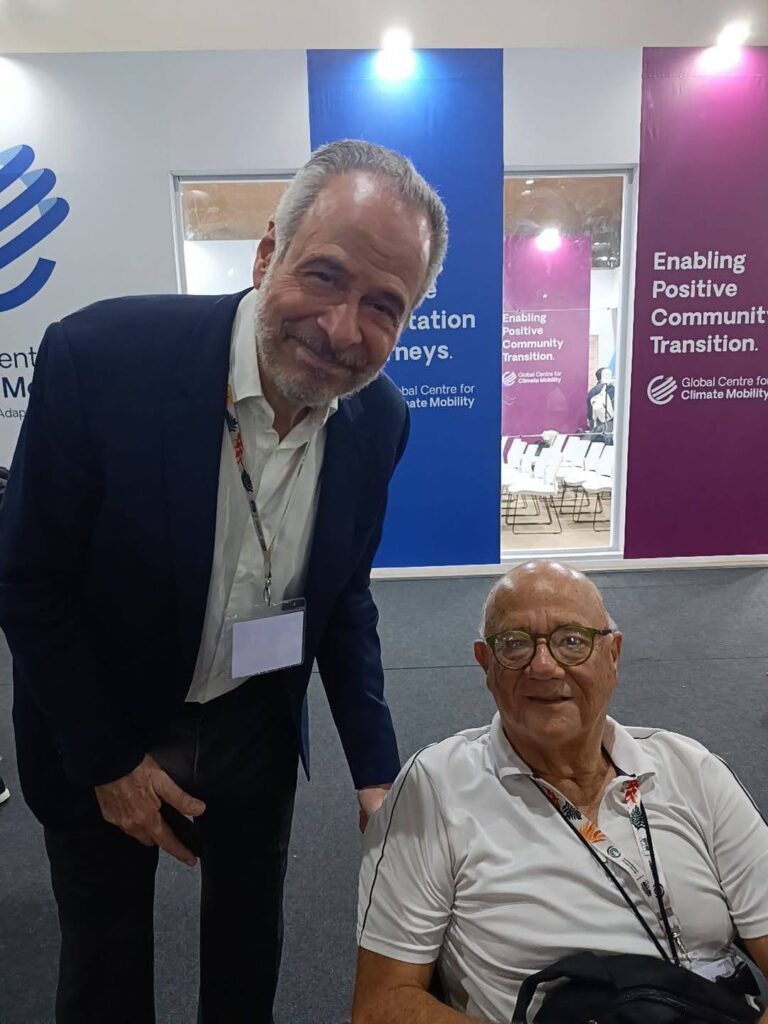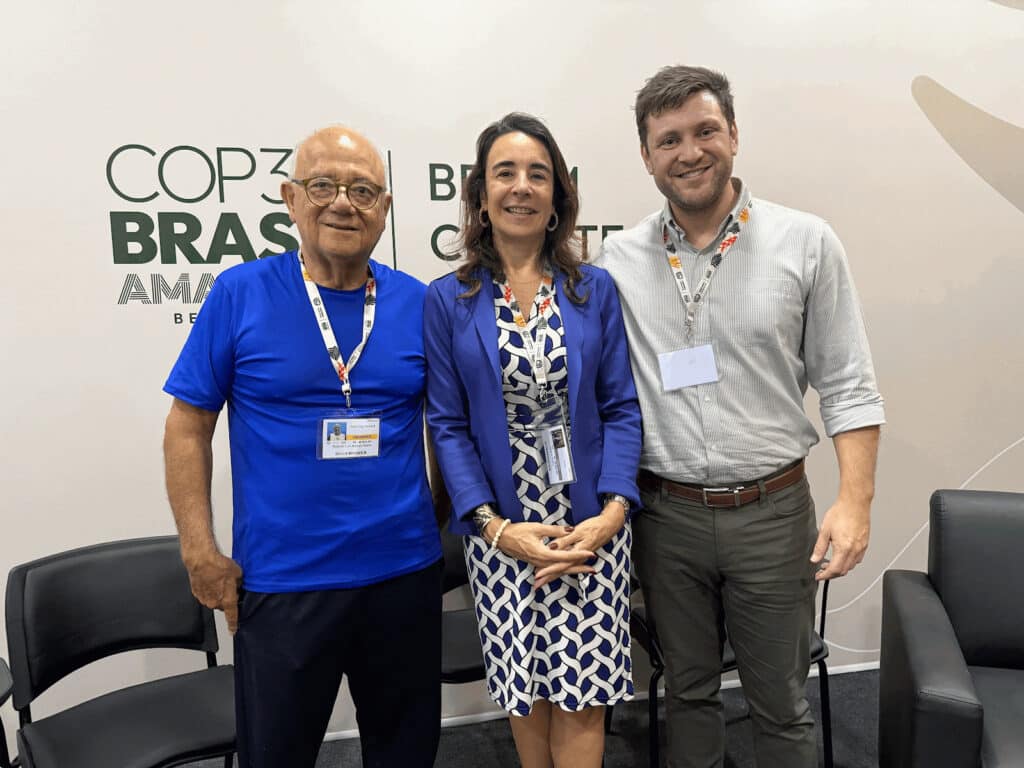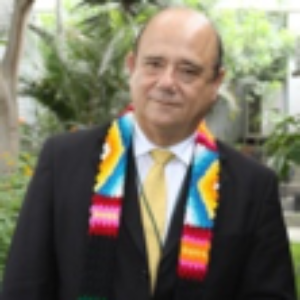Climate Education
A Historic Milestone for Climate Education and Global Action
November 24, 2025
The conclusion of COP30 in Belém represents a landmark moment for the global climate movement. As the regional Director of EARTHDAY.ORGin South America I would like to extend my deepest gratitude to the Government of Brazil, the United Nations Framework Convention on Climate Change (UNFCCC) Secretariat, the Presidency team led by Ambassador André Corrêa do Lago, and the thousands of organizers, negotiators, youth leaders, scientists, and civil-society partners whose commitment turned COP30 into a model of excellence.
For me and my EARTHDAY.ORG colleagues, Bryce Coon and Max Falcone, the quality and quantity of proposals, the inclusion of Indigenous and Amazonian voices, and the clarity of the collective ambition made this COP transformative.


An Extraordinary Leap in Climate Education: From 40 to 152
Perhaps one of the most remarkable achievements of COP30 is the global recognition of climate and environmental education as central to climate action. Today 152 nations have included climate education in their updated NDCs, a staggering advance from the original 40 countries after the 2015 Paris Agreement.
This accomplishment reflects nearly a decade of collective work by governments, ministries of environment and education, youth movements, academic institutions, and nonprofit organizations. For EARTHDAY.ORG, which has promoted, amplified and even defended environmental education since the very first Earth Day in 1970, this expansion represents a turning point.
“It has been clearly recognized that this joint effort among countries would not have been possible without international organizations such as EARTHDAY.ORG and agencies such as the United Nations and UNEP. They are crucial because they provide support, financing, and initiatives that help countries move forward.”
Minister Juan Carlos Castro Vargas, Minister of the Environment of Peru
It confirms that education is no longer peripheral—it is a pillar of national climate strategies. It provides a stronger foundation for green jobs, a just clean energy transition, and community resilience. It aligns science, policy, and civic action in ways unimaginable just a few years ago.
COP30 has demonstrated that when nations understand the role of education in long-term systems change and decision making, the world moves faster and more coherently toward solutions.
For the Love of Forests
One highlight was the renewed focus on the FTTT Initiative (Forests, Territories, Trees, and Transition)—a Brazilian proposal that integrates community-led forestry, canopy restoration, bioeconomy opportunities, and climate education.
FTTT provides an institutional framework that other nations can adapt. EDO cares passionately about the health of the world’s forests and through out Canopy Tree Project we have been planting millions of trees for decades.
Our own new series, UNDERREPORTED EARTH – “TREE TALES”– IG trail – sees Tracy McVeigh from The Guardian speak with three top investigative journalists about their groundbreaking reporting around forests: Elisangela Mendonça uncovers how the Amazon rainforest is being threatened by the collagen industry. Josephine Moulds takes us into the Congo Basin, where fossil fuel auctions are endangering one of the world’s most vital rainforest ecosystems. Ana Bottallo travels deep into the Amazonian mangroves to witness how local communities fought to have their voices heard.
The episodes go live November 17/18th/19th across EARTHDAY.ORG social media on Facebook: Ep.1, Ep.2, Ep.3 and YouTube: Ep.1, Ep.2, Ep.3. Well worth a listen and helps to reveal some of what the Indigenous communities are fighting for.
A Global Strategy to Align Donors and Investors
In the spirit of the Brazilian FTTT initiative, we need a Common Strategy for International Donors and Nonprofit Climate-Education Investors—a coordinated, global effort that channels resources efficiently. This strategy would align international philanthropy, development banks, corporate sustainability funds, and nonprofit networks toward measurable climate-education outcomes.
It also facilitates long-term programs for teacher training, curriculum innovation, youth leadership, climate-literacy certification, and green-jobs pathways. Additionally, it will strengthen monitoring frameworks that allow countries to track progress in their NDC-aligned education initiatives.
“Climate education helps children understand and care for our planet, because they are the future. Through EARTHDAY.ORG, young people everywhere are learning how to protect the Earth’s health—the world they will live in and pass on to the next generations. When children learn to love and protect the planet, they become the hope of tomorrow.”
Mr. Tebwaatoki Taawetia, Permanent Secretary, Kiribati
During our meetings with Ambassador Tatiana Rosito, Secretary of International Affairs (SAIN) at Brazil’s Ministry of Finance, and with the team of professionals led by Maria Netto at the Instituto Clima e Sociedade (iCS), it became clear that Brazil’s emerging financial architecture creates unprecedented opportunities for climate education.
The plan’s first USD 10 billion FTTT-aligned phase paves the way for a complementary round of junior capital, philanthropic, and blended financing to advance climate education, youth entrepreneurship, and early-stage startups in Amazonian and traditional communities, ensuring Brazil’s energy transition delivers skills, livelihoods, and innovation to the territories that protect the forest.
This vision was shared in exclusive interviews we had with Wanjira Mathai Vice President and África Director of WRI and Manuel Pulgar Vidal, former Minister of Environment of Peru and President of COP20 LIMA , present WWF global climate Envoy.

Knowledge is Power
Brazil’s tradition of multirões—large, volunteer-driven collective actions—stood out during COP30. Indigenous Andean cultures made their voices heard at the COP like never before, in negotiations, and with demonstrations.
We should heed their advice developed as they have enduring systems of cooperative labor that have shaped their ecological and social resilience: the Ayllu, a form of community kinship and shared stewardship of land; the Mita, a structured system of collaborative public service; and the Minka, a voluntary, communal practice for building, farming, and collective well-being.
Recognizing these ancestral traditions reinforces the idea that climate action is not new—it is a continuation of the communal wisdom of Latin America.
Many organizations recognize what we can learn from traditional wisdom – Limpa Brasil, Let’s Do It!, Reconnecta Escolas Pelo Clima, the Pastoral do Meio Ambiente of the Basilica of Nazaré, Brazilian Coalition for Climate Education CBEC, CTNEAC-FBMC, IPAM Amazônia, and many local schools and volunteer groups demonstrated at COP30 how respect and coordinated action amplifies results across all states of Brazil and beyond.
They, like us, know that investment in climate education must reach everyone – the students, teachers – of all communities. This includes Indigenous communities, quilombolas, and rural youth who are custodians of some of the planet’s most vital ecosystems. Investments must expand access to climate-literacy training to the Amazonian communities and all Indigenous people.
“Climate education transforms communities and inspires action. Across Brazil, the projects of Limpa Brasil – Let’s Do It! show that when people unite around a common purpose, they become protagonists of the energy transition and the building of more sustainable cities. The work of EARTHDAY.ORG strengthens this network of active citizenship, connecting education, the environment, and collective responsibility in every state of the country.”
Edilainne Muniz Pereira, Diretora de Limpa Brasil, Let’s Do It! São Paulo, SP, Brasil

The momentum generated in Belém must not be temporary—it must become a shared roadmap for the next decade. EARTHDAY.ORG reaffirms its commitment to supporting nations in implementing climate-education in their NDCs.
As we look to Earth Day 2026 and beyond, the message from COP30 is clear; climate education is no longer optional—it is the foundation of resilience, green-job economies, and planetary stewardship. Brazil and the UNFCCC have helped make this reality visible on the global stage. For that, EARTHDAY.ORG extends its sincere gratitude—and its renewed determination to turn this historic momentum into lasting, transformative action.
“Climate education stands as a beacon of hope and a catalyst for transformative change, empowering individuals and communities alike to confront the pressing climate challenges of today and tomorrow. All institutions supporting this noble endeavor, including EARTHDAY.ORG, need great commendation.”
Modou Cham, Principal Climate Change Officer, Ministry of Environment, Climate Change, and Natural Resources, Gambia
